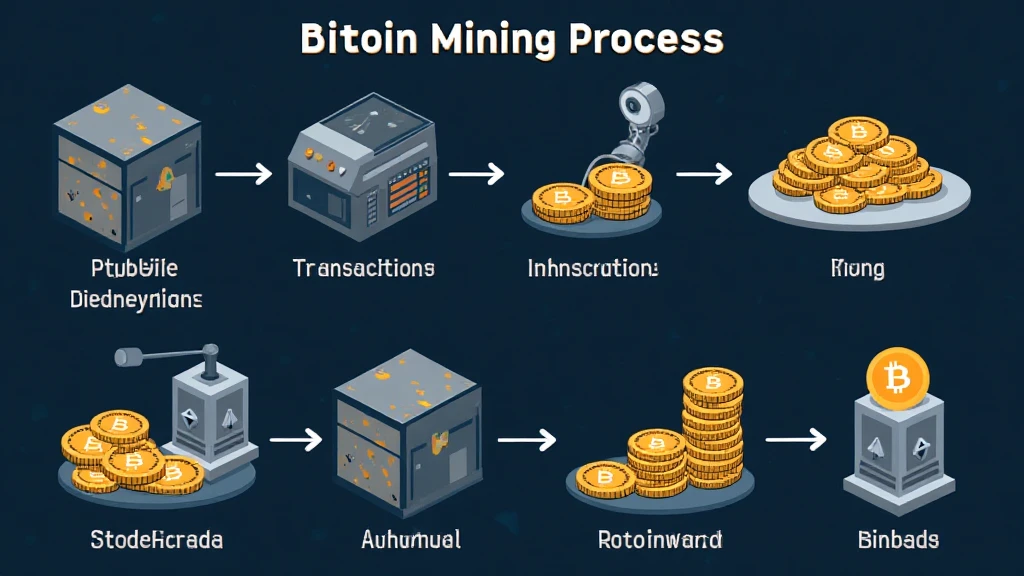Introduction
With over $4.1 billion lost to DeFi hacks in 2024, the security of digital assets has never been as critical as it is today. As Bitcoin continues to dominate the cryptocurrency landscape, its mining process stands as both a technological marvel and a significant economic driver. This article provides a comprehensive look into Bitcoin mining, shedding light on its mechanics, challenges, and implications for the future. Whether you’re a seasoned miner or a curious newcomer, there’s valuable knowledge ahead.
The Basics of Bitcoin Mining
At its core, Bitcoin mining is the process by which new bitcoins are created and transactions are verified on the blockchain. Think of it as the process of creating fresh currency and ensuring transactional integrity at the same time. Much like a bank securing your physical money, Bitcoin miners are the gatekeepers of this digital currency.
How Bitcoin Mining Works
- Transaction Verification: Every time a transaction occurs, it must be confirmed and added to the blockchain. Miners collect these transactions into blocks.
- Solving Complex Problems: To add a block, miners must solve a cryptographic puzzle. This process is energy-intensive and requires advanced computational power.
- Reward System: Successful miners receive Bitcoin as a reward, encouraging continual participation in the network.
The Economic Impact of Bitcoin Mining
Bitcoin mining has evolved into a multi-billion-dollar industry, significantly impacting economies around the world. In Vietnam, for example, Bitcoin mining has seen a rapid increase, with user growth rates soaring by over 150% in the last year. This growth highlights the increasing interest in cryptocurrency amidst global economic fluctuations.

The Environmental Concerns
While Bitcoin mining offers numerous benefits, it does come with its share of environmental concerns. The energy consumption of Bitcoin mining is comparable to that of entire countries.
Energy Usage Statistics
- As of 2025, Bitcoin mining consumes approximately 135 Terawatt-hours per year, threatening to undermine sustainability efforts.
- Many miners are making the switch to renewable energy sources to mitigate this issue.
Future of Bitcoin Mining: Trends and Innovations
Looking ahead, Bitcoin mining is poised for significant changes. Technological advancements will play a pivotal role in shaping its future.
Emerging Technologies
- ASIC Miners: Application-specific integrated circuits (ASICs) have revolutionized Bitcoin mining by boosting efficiency.
- Changes in Protocol: Ongoing discussions about potential protocol upgrades may alter the dynamics of mining rewards.
The Role of Regulations
As Bitcoin mining grows, so does regulatory scrutiny.
- Countries such as Vietnam are exploring regulatory frameworks to govern Bitcoin mining, focusing on environmental impacts and economic benefits.
- Compliance will play a crucial role in the sustainable growth of the mining industry.
Conclusion
In conclusion, Bitcoin mining is more than just the creation of digital coins; it’s a critical element of the cryptocurrency ecosystem that has profound social, economic, and environmental implications. As we move toward a future increasingly intertwined with digital assets, understanding Bitcoin mining will be essential for anyone interested in this fast-evolving field. Remember, being informed is the first step toward making smart decisions in the cryptocurrency space.
For more detailed insights about cryptocurrency and how to navigate the complex world of digital assets, visit mycryptodictionary.
Author: Dr. John Smith, an expert in blockchain technology, has published over 50 papers in the field and has led audits for notable projects within the cryptocurrency space.






